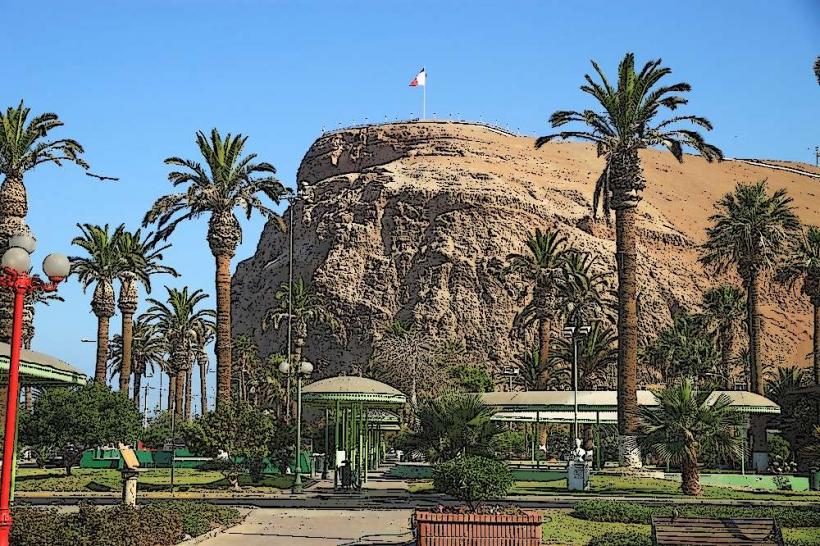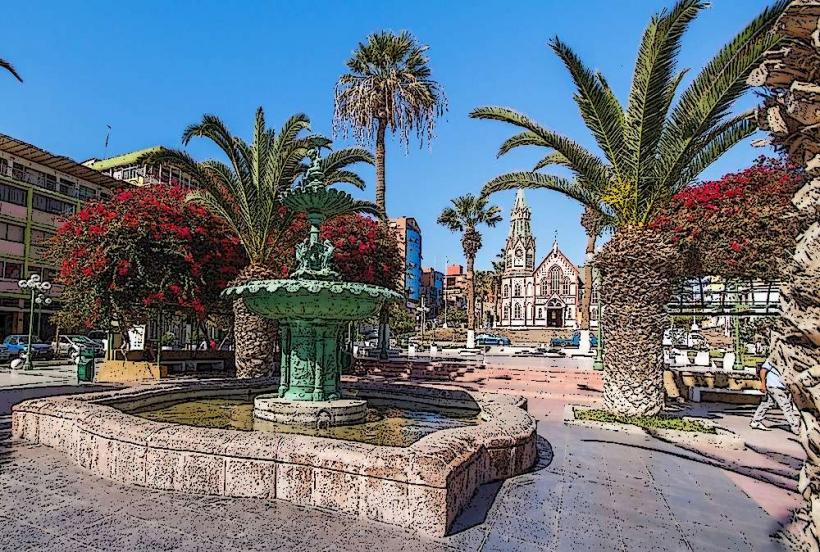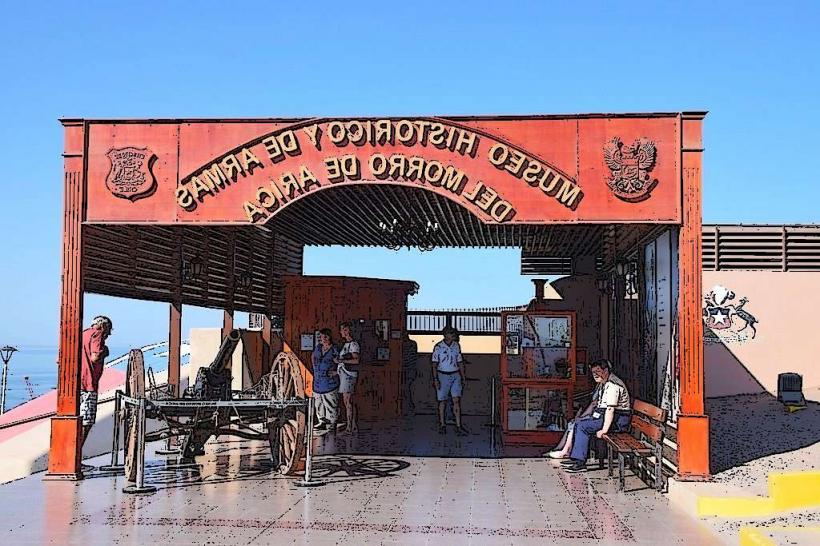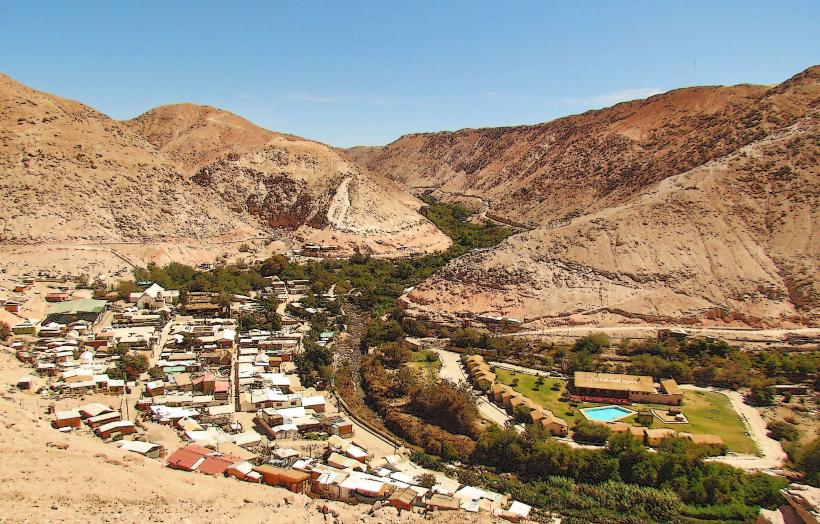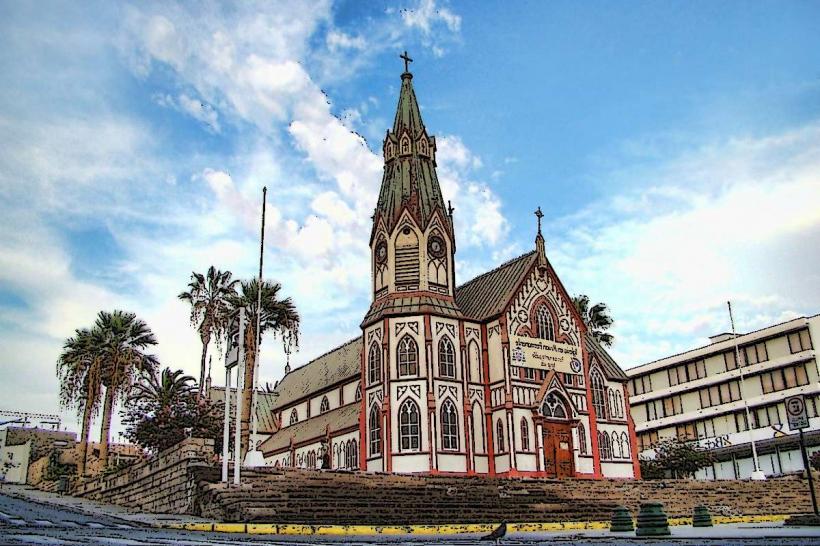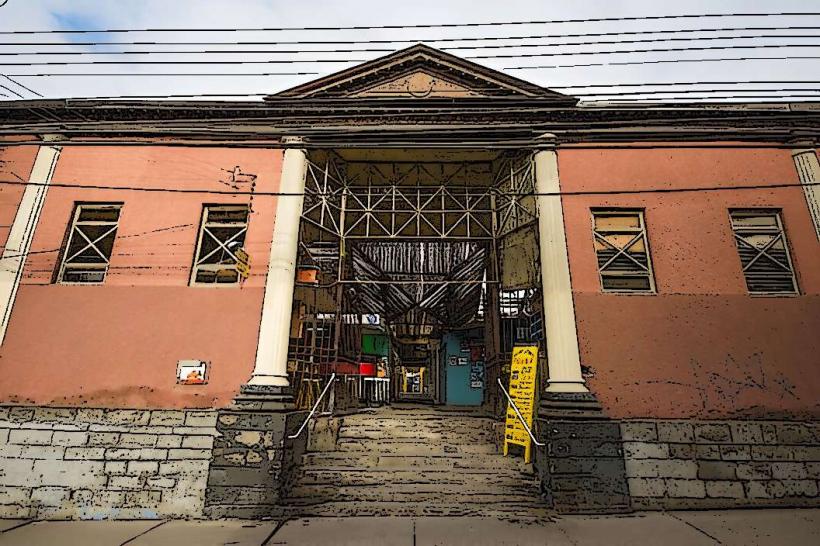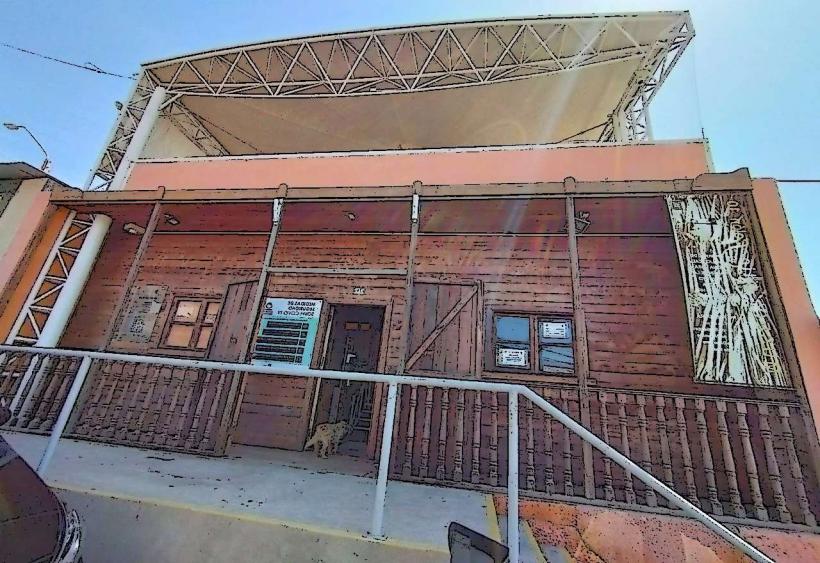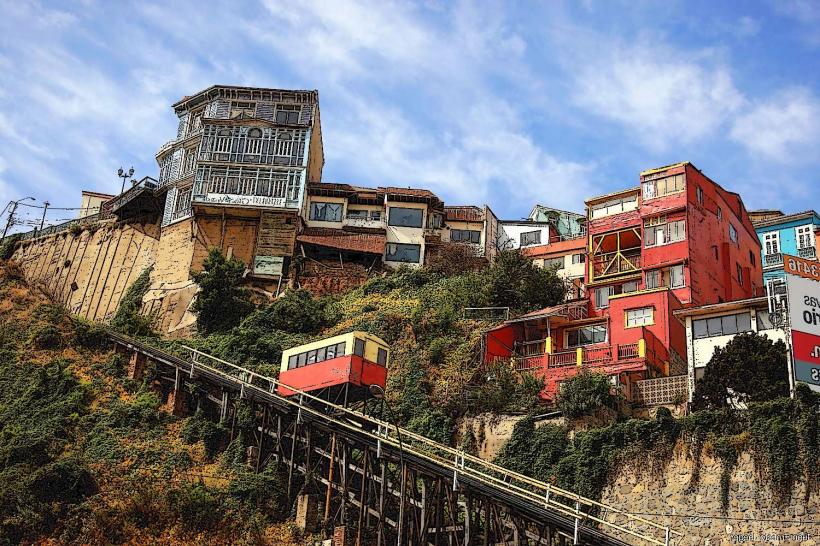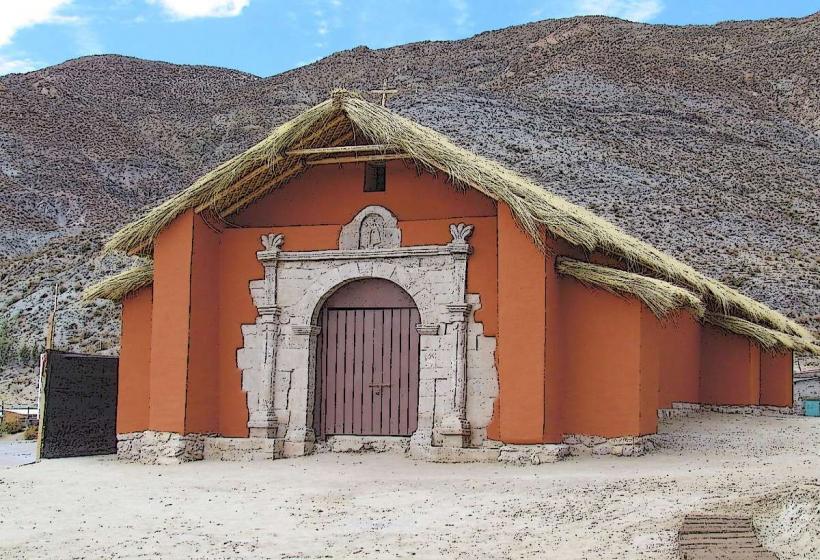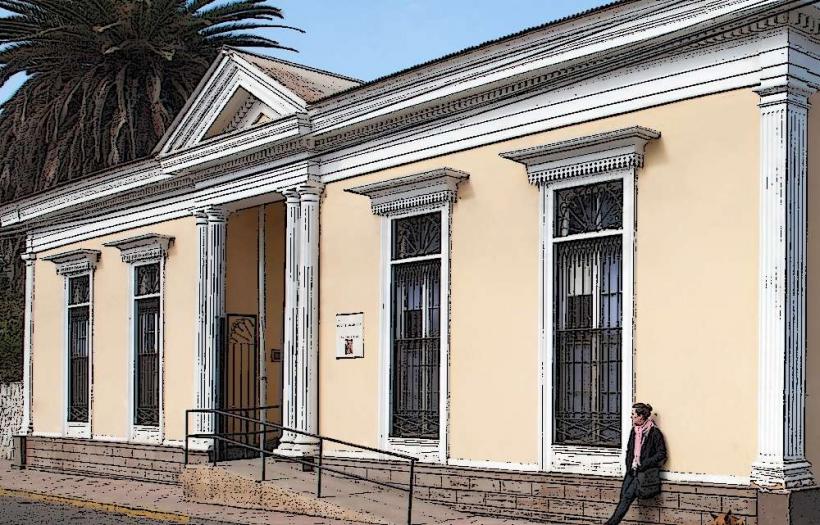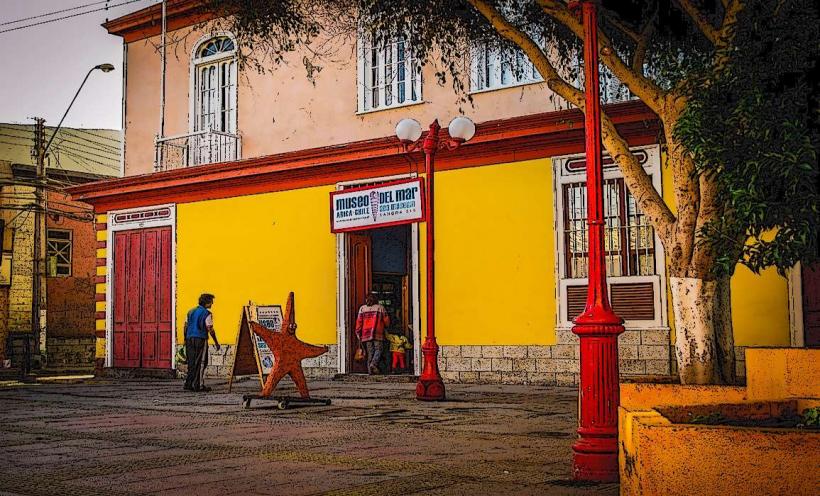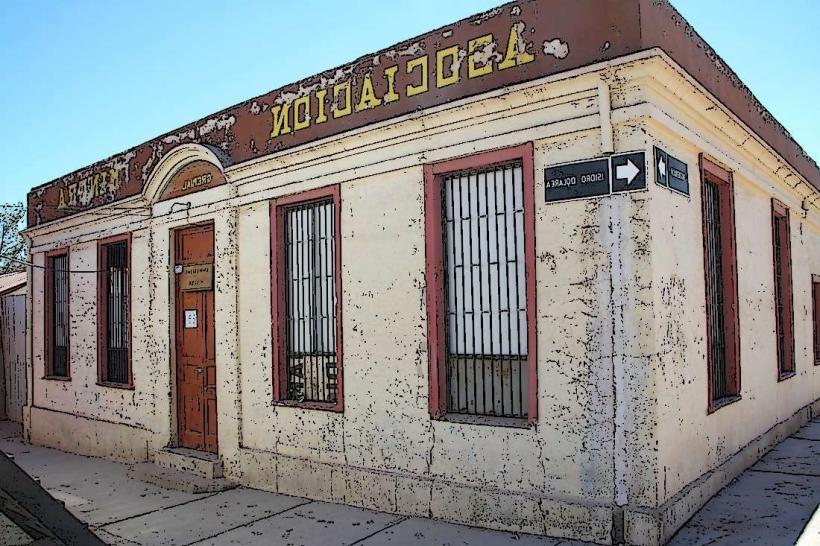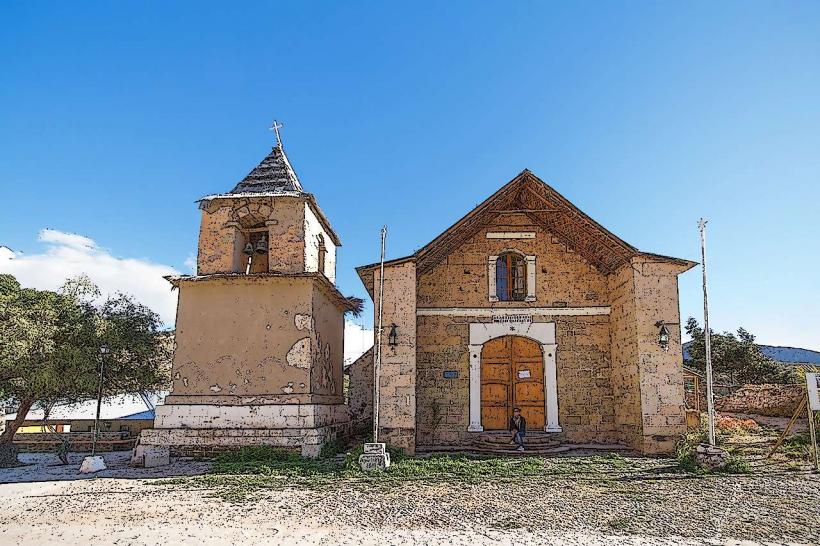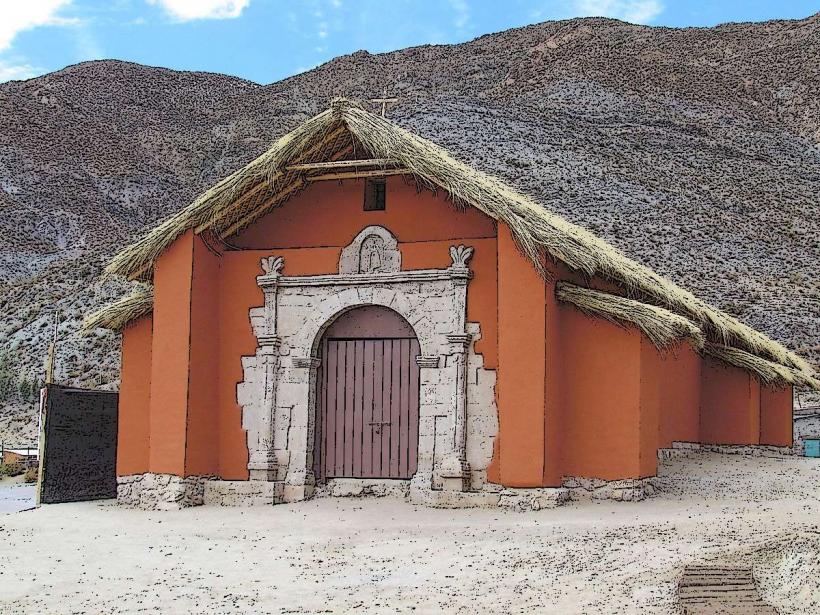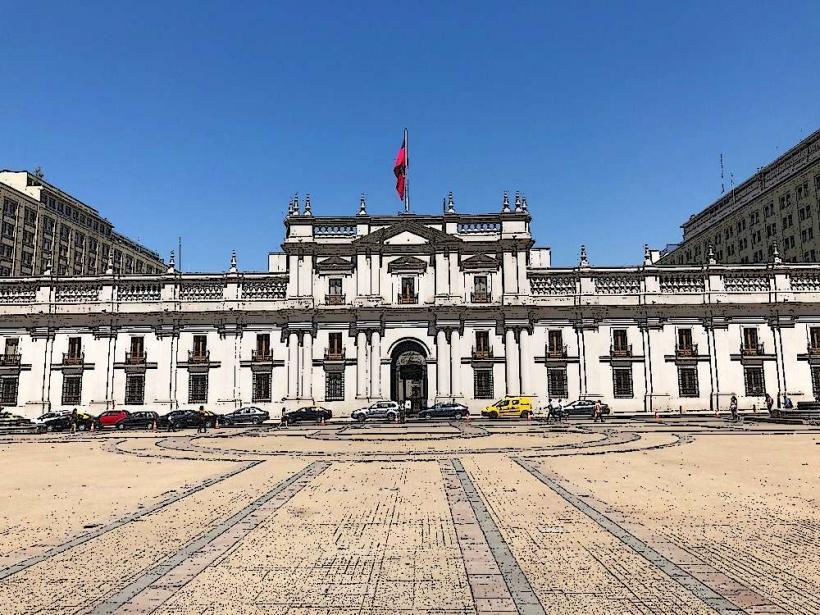Information
Landmark: Iglesia de San MarcosCity: Arica
Country: Chile
Continent: South America
Iglesia de San Marcos, Arica, Chile, South America
Iglesia de San Marcos is a historic church located in the city of Arica, Chile.
This structure is notable for its construction and its role in the city's development.
Visual Characteristics
The church is constructed primarily from prefabricated iron panels, painted a light blue. It features a single nave with a gabled roof. The facade is characterized by a prominent bell tower with a pyramidal roof. The overall design reflects 19th-century industrial architecture.
Location & Access Logistics
Iglesia de San Marcos is situated in the central plaza of Arica, Plaza Colón. It is approximately 0.2 km west of the main port facilities. Parking is available in paid public lots surrounding Plaza Colón. Bus lines 1, 2, 3, 4, 5, 7, 8, 10, and 12 stop at or near Plaza Colón.
Historical & Ecological Origin
The church was designed by Gustave Eiffel and constructed in Paris in 1876. It was then disassembled and shipped to Arica, where it was reassembled in 1877. Its original purpose was to serve as a Catholic parish church for the growing port city.
Key Highlights & Activities
Visitors can observe the unique iron construction and architectural details. The interior houses religious artifacts and artwork. Photography of the exterior and interior is permitted.
Infrastructure & Amenities
Restrooms are available in the public facilities adjacent to Plaza Colón. Limited shade is provided by surrounding trees in the plaza. Cell phone signal (4G/5G) is generally strong in this central area. Food vendors and cafes are located around Plaza Colón.
Best Time to Visit
For optimal lighting on the exterior ironwork, visit between 10:00 AM and 2:00 PM. The climate in Arica is arid year-round, with average temperatures ranging from 18°C to 25°C. No specific tide requirements affect access.
Facts & Legends
A local anecdote suggests that the iron panels were originally intended for a church in the Philippines but were rerouted to Arica due to shipping logistics.
Nearby Landmarks
- Museo Arqueológico y Antropológico de San Miguel de Azapa (5.5km East)
- Morro de Arica (0.3km West)
- Arica Cathedral (0.1km North)
- Plaza Colón (0km)

